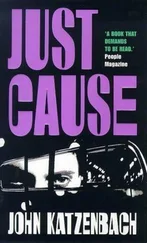Ricky did as instructed. The first message was from the kennel owner.
“I thought you’d be staying someplace cheap and close. Wasn’t too hard to figure out where. I been thinking about your questions. Call me. I think maybe I’ve got some information that might help you out. But you better get out your checkbook. Gonna cost you.”
Ricky pushed the numeral three to erase the message. The next message was played automatically. The voice was clipped and cool and astonishing, almost like finding a piece of ice on a hot sidewalk during a summer day.
“Mister Lazarus, I have just been informed of your curiosity concerning the late mister and missus Jackson, and believe I might have some information in that regard that might assist you in your inquiries. Please telephone me at 212-555-1717 at your earliest possible convenience, and we can arrange a meeting.”
The caller did not provide a name. That was unnecessary. Ricky recognized the voice.
It was Virgil.
Part Three. Even Bad Poets Love Death
Ricky fled.
Bag hurriedly packed, tires squealing, accelerating down the highway, he raced away from the motel in New Jersey and the familiar voice on the phone. He barely took the time to wash the fake scar from his cheek. In the space of one morning, by asking a few questions in the wrong places, he had managed to compress time, turning it from his ally into his enemy. He had thought he would slowly scrape away at Rumplestiltskin’s identity, and then, when he’d managed to discover everything he needed, he would take a slow and sturdy approach to designing his own revenge. Make certain that everything was in place, traps set, and then emerge on an equal footing. Now, he understood, that luxury had disappeared.
He did not know what the connection was between the man at the kennel and Rumplestiltskin, but it surely existed, for following his departure, while Ricky was idly inspecting the grave site of a dead couple, the kennel owner had been making telephone calls. The ease with which the man had found the motel where Ricky had been staying was daunting. He told himself that he needed to be far more careful covering his tracks.
He drove hard and fast, heading back to New Hampshire, trying to assess how compromised his existence truly was. Random fears and contentious thoughts reverberated throughout him.
But one idea was paramount. Ricky could not return to the passivity of the psychoanalyst. That was a world where one waited for something to happen, and then, before acting again, tried to interpret and understand all the forces within. It was a world of reaction, of delay. Of calm and reason.
If he fell into its trap, it would cost him his life. He knew that he had to act.
If nothing else, he had to create the illusion that he was as dangerous as Rumplestiltskin.
He had just passed the welcome to massachusetts sign on the roadway, when an idea came to him. He saw an exit up ahead, and just beyond that the common American landscape marker: a shopping mall. He steered the rental car off the thruway, and into the mall’s parking lot. Within a few minutes, he was shoulder to shoulder with all the other people, heading in to the array of stores, all selling more or less the same things for more or less the same prices, but packaged in different manners, giving shoppers the sensation they were finding something unique amid all the similarity. Ricky, seeing some dark humor in it, thought it a wildly appropriate spot for what he was about to do.
It did not take him long to find a gathering of telephones, near the food court. He remembered the first number easily. Behind him, there was a low buzz of people at tables eating and speaking, and he half covered the receiver with his hand as he dialed the number.
“ New York Times classified.”
“Yes,” Ricky said, pleasantly. “I’d like to purchase one of those small one-column ads for the front page.”
In rapid order, he read off a credit card number. The clerk took the information and then asked, “Okay, Mr. Lazarus, what’s the message?”
Ricky hesitated then said:
Mr. R. game on. A new Voice.
The clerk read it back. “That’s it?” he asked.
“That’s it,” Ricky said. “Make sure you uppercase the word Voice , okay?”
The clerk acknowledged the request and Ricky disconnected the line. He then walked over to a fast-food outlet, purchased himself a cup of coffee, and grabbed a handful of napkins. He found a table a little ways apart from most of the crowds, and settled in, with a pen in his hand, sipping at the hot liquid. He shut out the noise and the activity and concentrated on what he was about to write, tapping the pen occasionally against his teeth, then taking a drink, all the time calming himself, planning. He used the napkins as scratch paper, and finally, after a few fits and starts, came up with the following:
You know who I was, not who I am.
That is why you’re in a jam.
Ricky’s gone, he’s very dead.
I am here, in his stead.
Lazarus rose, and so have I,
And now it’s time for someone else to die.
A new game, in an old place,
Will eventually bring us face-to-face.
Then we’ll see who draws the last breath,
Because, Mr. R., even bad poets love death.
Ricky admired his work for a moment, then returned to the bank of telephones. Within a few moments, he’d connected with the classified department at the Village Voice . “I’d like to place an ad in the personals section,” he said.
“No problem-o. I can take that information,” this new clerk said. Ricky was mildly amused that the person in classified at the Voice seemed significantly less stuffy than their counterparts at the Times , which, when he considered it, was more or less as expected. “What sort of heading do you want on the message?”
“Heading?” Ricky asked.
“Ah,” said the clerk. “A first-timer. You know, the abbreviations like WM for white male, SM for sadomasochism…”
“I see what you mean,” Ricky replied. He thought a moment, then said, “The top should read: WM, 50s, seeks Mr. Right for special fun and games…”
The clerk repeated this to Ricky. “Okay,” he said, “something else?”
“Oh, yes, indeed,” Ricky said. He then read off the poem to the clerk, making the man repeat the message twice, to be certain that he had it correctly. When he’d finished reading, the clerk paused.
“Well,” he said, “that’s different. Way different. This will probably bring them all out of the woodwork. The curious, at least. And maybe a few of the crazies. Now, do you want to pay for a box reply? We give you a box number, and you can access the replies by phone. The way it works, while you’re paying for the box, only you can get the answers.”
“Please,” Ricky said. He heard the clerk clicking on a computer keyboard. “All right,” he said. “You’re box number 1313. Hope you’re not superstitious.”
“Not in the slightest,” Ricky said. He wrote down the number for accessing the answers on his napkin and hung up the phone.
For a moment, he considered calling the number that he had for Virgil. But he resisted this temptation. He had a few more things to arrange first.
In The Art of War , Sun-Tzu discusses the importance of the general choosing his battleground. Occupying a position of mystery, seizing a location of superiority. Taking the high ground. Being able to conceal one’s strength. Creating advantages out of topographical familiarity. Ricky thought these lessons applied to him, as well. The poem in the Village Voice was like a shot across the bows of his adversary, an opening salvo designed to get his attention.
Читать дальше












